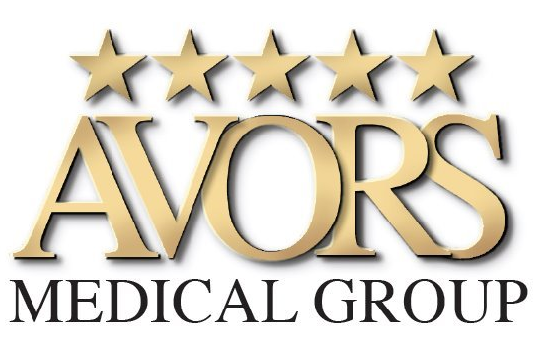Brain and Spinal Cord Injury
Valencia, CA & Lancaster, CA
Brain and Spinal Cord Injury
Spinal Cord Injury (SCI) is damage to any part of the spinal cord or nerves that often causes permanent changes in strength, sensation and other body functions below the site of injury. As of 2019 the National Spinal Cord Injury Statistical Center (NSCISC) at UAB have estimated that 17,730 new SCI cases occur each year, and an estimated 250,000 to 363,000 people are currently living with SCI in the United States. The NSCISC identifies that Trauma from vehicular crashes account for 39.3%, 31.8% from Falls, 13.5% from Violence (mostly gunshot wounds), 8% from sport or recreational activity, 4.1% are Medical/Surgical related, and 3.1% from other.
The brain and spinal cord both make up the central nervous system. Traumatic brain injury (TBI) can occur in tandem with spinal cord injury, causing a host of problems that can affect your entire body.
Below you'll find valuable information on brain and spinal cord injury rehabilitation. For more information please contact us in Valencia, CA (661) 705-5100 or Lancaster, CA (661) 726-5005.
What Is Acquired Brain Injury (ABI)?
Non-Traumatic Brain Injury (NTBI) results from organic etiology, such as an illness (meningitis, encephalitis, brain infections), any situation that may decrease oxygen to the brain to cause stroke (such as a clot, vascular disease, heart failure), metabolic disorders, aneurysm, tumors (cancer, non-cancer), brain hemorrhage and other (surgical procedure, prolonged epilepticus, exposure to toxins).
Brain and Spinal Cord Injury are life changing neurological conditions that can have a significant socioeconomic as well as psychosocial impact for patients and caregivers. Patients who are affected are faced with long-standing, and often permanent, cognitive, emotional, behavioral, and physical changes and consequences. However, rehabilitation can help deal with these new changes or help with chronic disabling changes from ABI or SCI when re-implemented.
What is rehabilitation?
Rehabilitation as defined by the World Health Organization (WHO) is a set of interventions needed when a person is experiencing limitations in everyday functioning due to aging or a health condition, including chronic diseases or disorders, injuries or traumas. Rehabilitation is a highly person-centered health strategy that may be delivered in various ways. Some rehabilitation services are offered through Inpatient Facilities: Acute Rehabilitation Units, Subacute Rehabilitation Units, Skilled Nurse Facilities or Long-Term Care Facilities. There are also Outpatient Rehabilitation Facilities as well as services integrated into other rehabilitation programs (Primary Health Care, Mental Health, Vision, Hearing programs). Advancements in healthcare have led to the availability of very specialized rehabilitation centers for ABI and SCI in many communities. These centers combine inter-disciplinary treatments that cater to the injury specific needs of persons affected. Some examples of specific programs include, but are not limited to, Stroke, Brain Trauma, Brain Injury, Spinal Cord Injury, Orthopedic, Sports Physical, Vestibular, Return-to-Work, and Neuro-Developmental Programs.
Rehabilitation is a highly integrated form of health care that complements other health interventions. It can help minimize or slow down disabling effects of ABI or SCI by teaching physical and mental self-management strategies, or by providing and implementing the use of assistive products. Rehabilitation is clearly considered an investment with significant cost-benefits for persons affected and for society. It can help avoid costly hospitalization, reduce hospital length of stay and prevent readmissions. As stated by the United Spinal Association the goal of rehabilitation is to help persons learn how to optimize recovery and care for a body that works differently. It aims to obtain or maintain a high level of health that avoids secondary complications of ABI or SCI and chronic disability, and to reintegrate oneself back into the community.
Common Causes of Spinal Cord Injuries
- Car accidents
- Falls
- Acts of violence
- Extracurricular activities
- Sports
- Alcohol-related
- Disease
Spinal cord injuries are particularly prevalent while driving. According to BrainandSpinalCord.org, 42.1% of brain and spine injuries come from motor vehicle accidents, 26.7% from falls, 15.1% from acts of violence, and 7.6% from sports incidents. Most of us drive every day without considering the risks of debilitating injury.
Brain and spinal cord injuries can severely impact your work performance and employability. Out of all US brain and spinal cord injury patients, only 11.5% are employed and working one year after their injury. Only 35.4% of TMI and spine injury patients are employed 20 years after their injury.
Common Causes of Brain Injuries
The most common cause of traumatic brain injury is a substantial blow to the head (head trauma). It can be brought on from foreign objects (bullets, weapons, rocks, etc), as well as bone fragments penetrating brain tissue.
Causes of non-traumatic brain injury include
- Stroke
- Tumors
- Infections or inflammation
- Lack of oxygen
- Cancer and other illnesses
At AVORS, we offer
- Brain and spine injury rehabilitation
- Spine injury and disorder treatment
- Spinal cord stimulation
We also provide preventive medicine that might make the difference between living with a traumatic brain or spine injury and avoiding potential long-term damage.
Schedule your consultation at AVORS immediately if you’ve experienced a brain or spinal cord injury. We’ll give you the compassionate care you need every step of the way, from diagnosis to treatment, recovery, and aftercare.


